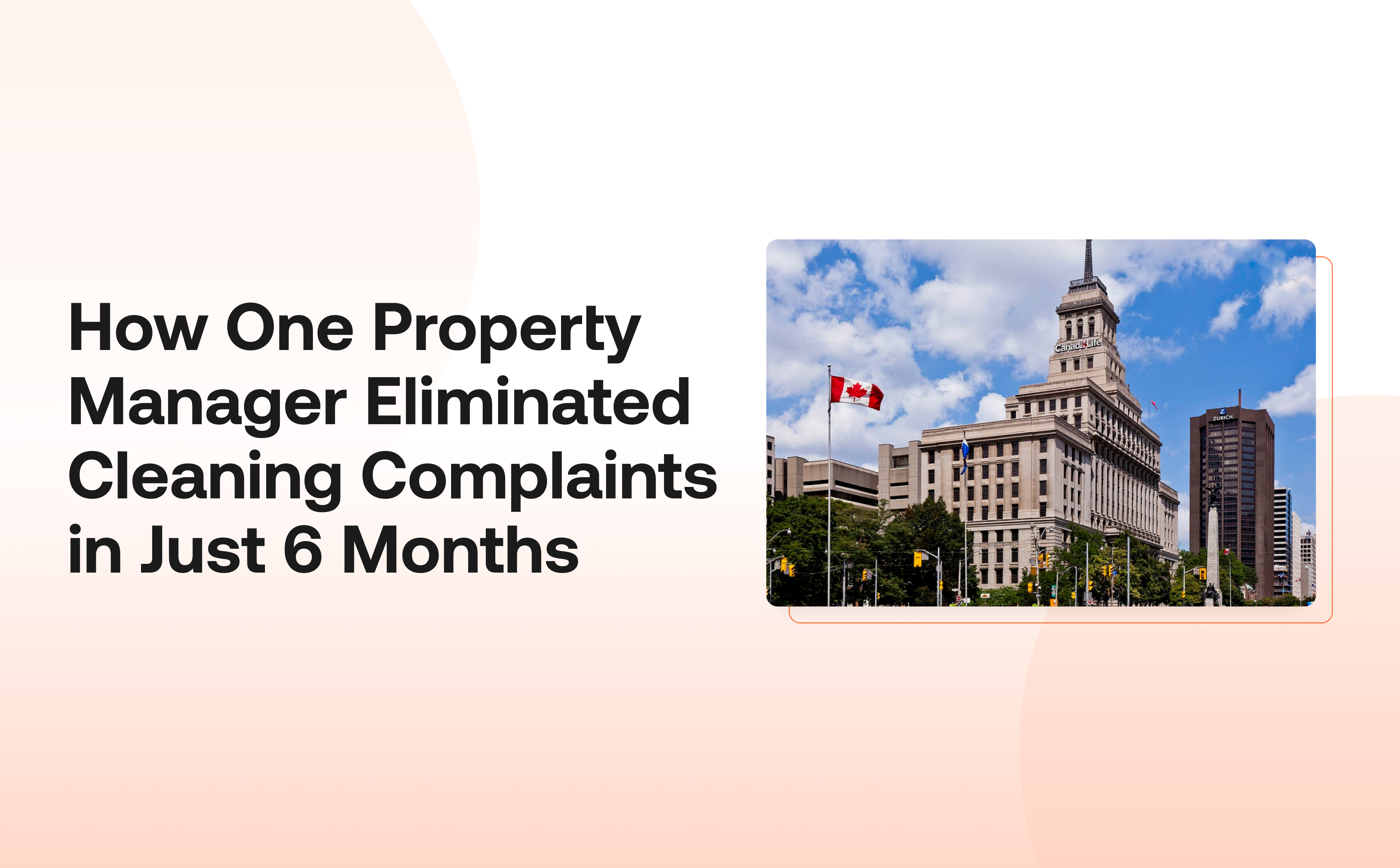

Modernizing Washroom Cleanliness Records: Mero's Vision for Bill 190
November 15, 2024
•
6
min to read
Modernizing Washroom Cleanliness Records: Mero's Vision for Bill 190

More Strict Restroom Cleaning Requirements and Public Display of Washroom Cleanliness Records Becoming Mandatory in Ontario
November 15, 2024
•
6
min to read


Modernizing Washroom Cleanliness Records: Mero's Vision for Bill 190

More Strict Restroom Cleaning Requirements and Public Display of Washroom Cleanliness Records Becoming Mandatory in Ontario
November 15, 2024
•
6
min to read

Public Display of Washroom Cleanliness Records Becoming Mandatory in Ontario
On October 28, 2024, Ontario took a significant step towards improving workplace standards with the royal assent of Bill 190, the Working for Workers Five Act, 2024. This new law brings about significant changes to employment-related legislation in the province. While the bill covers a wide range of areas, at Mero, we've been intently focused on its implications for workplace cleanliness and worker health.
Understanding Bill 190: A New Ensuring for Workplace Hygiene
The bill proposes new definitions for washroom facilities and requires employers to ensure that visible records of cleaning are posted. The Bill is now in effect, with employers across Ontario struggling to know how to respond.
As a company deeply invested in building a healthier and more sustainable workplace, Mero strongly supports the goals of Bill 190's washroom regulations. We believe these changes will significantly improve hygiene standards and worker health across Ontario while setting a model for the rest of the world. This is an area where Mero has extensive experience, as Mero’s solution includes providing proof-of-entry and proof-of-work for the commercial cleaning firms engaged by employers or facilities management.
The Digital Advantage: Why Electronic Records Are Crucial
As an employer, focusing on digital records of washroom cleaning, rather than paper-based systems. Here's why:
- Accuracy and Reliability (i.e. Reduced Falsification): Electronic records are far more difficult to falsify, ensuring the integrity of cleaning logs.
- Accessibility: Cloud-based electronic records can be accessed by authorized parties anywhere, making it easier to verify compliance and track cleaning activities.
- Audit Trail: Digital logs provide a comprehensive history, which can be invaluable for insurance claims or legal matters.
- Efficiency: Our experience at Mero has shown that paper-based processes significantly hinder the potential efficiency of commercial cleaning firms. This is the opposite of what we see with automatic digital proof of entry and proof of work solutions that commercial cleaning firms can use to dramatically drive down costs while improving service levels.
.webp)
The Economic Impact of Improved Hygiene
Mero fully supports the intent behind Bill 190 and we believe that by improving washroom cleanliness standards, the legislation can have a significant positive impact on the Ontario economy, both for employers and workers. Reduced sick days, decreased absenteeism, and less spread of contagious diseases can all contribute to a healthier, more productive workforce. Implementing Bill 190 can have a substantial positive financial impact on both the Ontario economy and individual employers:
- Reduced Absenteeism: Improved hygiene standards can lead to fewer sick days and less illness spread through restrooms, a common vector for contagious diseases.
- Enhanced Return To Office Rates: A cleaner, more hygienic workplace can encourage more employees to work from the office, appreciating the cleanliness and safety.
- Cost-Effective Implementation: Solutions like Mero make it easy to record and log cleaning activities without significant additional staffing or resources.
- Slip and fall mitigation: A potential slip in a restroom could lead to thousands of dollars of loss, and cleaning staff are first responders to restroom areas.

Recommendations for Implementation
As the specifics of Bill 190's implementation are developed, we strongly urge employers to prioritize electronic record-keeping. This approach will not only ensure more accurate and accessible records but also enable employers and their contracted commercial cleaning firms to implement the new regulations more efficiently and effectively. One of the challenges we've observed at Mero is how paper-based processes can dramatically limit the efficiency of commercial cleaning firms while driving up costs. By embracing digital record-keeping, firms will be better equipped to implement the requirements of Bill 190.
Conclusion: Ontario Leads the Way in Global Workplace Hygiene Revolution
Bill 190 marks a pivotal moment in workplace hygiene standards, positioning Ontario at the forefront of a global movement towards cleaner, healthier work environments. By championing digital solutions for record-keeping we're setting a benchmark for the world to follow.
At Mero, we're committed to supporting commercial cleaning firms and employers in meeting these new standards, both in Ontario and beyond. Our sensor-based solutions are designed to streamline compliance with Bill 190 and similar regulations that we anticipate will emerge globally.
We're excited to see Ontario leading this hygiene revolution. As pioneers in cleaning management solutions, we at Mero foresee a rapid adoption of comparable legislation across North America, Europe, and the world within the next few years. This forward-thinking approach establishes Ontario as a global trendsetter in workplace hygiene and employee well-being.
Rest assured, Mero will be ready to support commercial cleaners anywhere as they implement such laws, leveraging our experience and technology to ensure seamless compliance and enhanced cleanliness standards.
As we move forward, let's embrace this opportunity to revolutionize workplace cleanliness in Ontario and beyond. Together, we can create safer, healthier, and more productive work environments for all while setting a new global standard for workplace hygiene.




